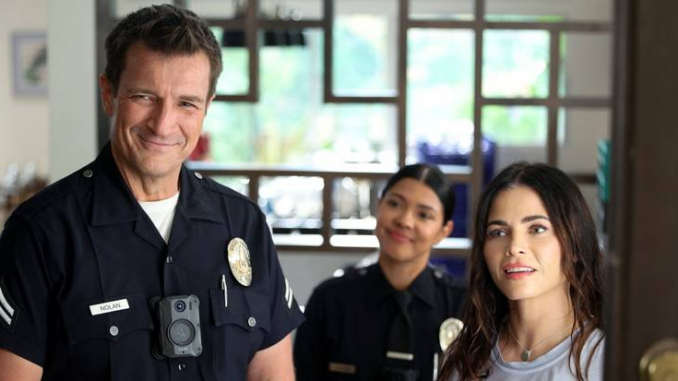
Why Newbies Can’t Seem to Adjust to the Force in ‘The Rookie’ Season 7
The Rookie has long captivated audiences with its blend of action, heart, and the challenges that come with being a police officer. In Season 7, a major theme that stands out is the difficulty rookies face in adjusting to the demands of the force. Despite their enthusiasm and commitment, the newcomers find themselves struggling to adapt to the high-pressure world of law enforcement, often facing setbacks that highlight the harsh realities of the job.
The Harsh Reality of the Job
One of the most compelling aspects of The Rookie Season 7 is its portrayal of the stark difference between the rookies’ expectations and the actual challenges of police work. When new officers first join the force, they are often driven by idealism, eager to make a difference and prove themselves. However, the reality of the job—dealing with dangerous criminals, navigating the complex emotions of victims, and managing the constant pressure of high-stakes situations—quickly wears them down.
The show does an excellent job of highlighting how the intense, often grueling nature of the job can take a toll on rookies. For some, the emotional weight of the job proves too much, while others struggle to meet the physical and mental demands of the role. This theme resonates with many viewers, especially those familiar with the demands of law enforcement, making the struggles of the new recruits feel all too real.

Mentorship: A Double-Edged Sword
Another key factor contributing to the rookies’ struggles is the mentorship system, which is central to The Rookie. While the veterans are there to guide the new officers, the mentorship dynamic is not always smooth. Veterans like John Nolan (Nathan Fillion) and Tim Bradford (Eric Winter) offer wisdom and support, but their tough-love approach can be overwhelming for some rookies who are not yet ready for the intensity of the job.
In Season 7, we see that the mentorship system, while invaluable, can also be a double-edged sword. The veterans push the rookies to become stronger, more competent officers, but this can sometimes lead to frustration and self-doubt among the new recruits. Some rookies struggle to meet their mentors’ high expectations, and their inability to perform at the required level often leads to personal crises.
This tension between the rookies’ desire to prove themselves and the veterans’ expectations creates a compelling dynamic that highlights the challenges of mentorship. It’s not just about learning the technical aspects of the job; it’s also about coping with the psychological pressure of trying to fit in with an experienced team while also carrying the weight of the job’s emotional demands.
The Pressure of Real-Life Stakes
Another reason why the rookies find it difficult to adjust to the force in The Rookie Season 7 is the ever-present danger and responsibility they face. As they venture into increasingly dangerous situations, the rookies quickly realize that their decisions can mean life or death, not only for themselves but for the people they’re trying to protect. This pressure often leads to mistakes and moments of doubt, which are exacerbated by the weight of the responsibility.
The show does an excellent job of showing how the rookies deal with the aftermath of these decisions. Some are able to bounce back and learn from their mistakes, while others find themselves paralyzed by fear or guilt. The constant threat of danger, coupled with the emotional toll it takes on the rookies, serves as a reminder of the gravity of police work and the immense challenges rookies must face to become seasoned officers.
The Struggle for Self-Identity
In addition to the pressure of the job itself, the rookies in The Rookie Season 7 also struggle with issues of self-identity. Many new officers enter the force with a clear sense of purpose, but the harsh realities of the job often cause them to question who they are and what they stand for. This internal struggle is a major theme in Season 7, as rookies wrestle with their motivations for becoming officers in the first place and whether they can still hold onto their ideals.
For some rookies, this period of self-doubt is essential for growth. They must confront their fears, challenge their assumptions, and find a way to reconcile their personal values with the demands of the job. However, for others, the strain proves too much, and they begin to question whether law enforcement is truly the right path for them.
Conclusion
The Rookie Season 7 continues to explore the emotional and physical challenges of rookie police officers, showing that the adjustment to the force is not as easy as it may seem. Through the lens of its new recruits, the show offers a gritty, realistic portrayal of the difficulties and internal struggles that come with the profession. From the pressure of mentorship to the weight of real-life stakes, The Rookie proves that becoming a seasoned officer requires much more than technical skill—it requires emotional resilience, self-awareness, and the courage to face one’s darkest fears. As the season progresses, fans will continue to see how the rookies evolve and whether they can adjust to the unrelenting demands of the force.
